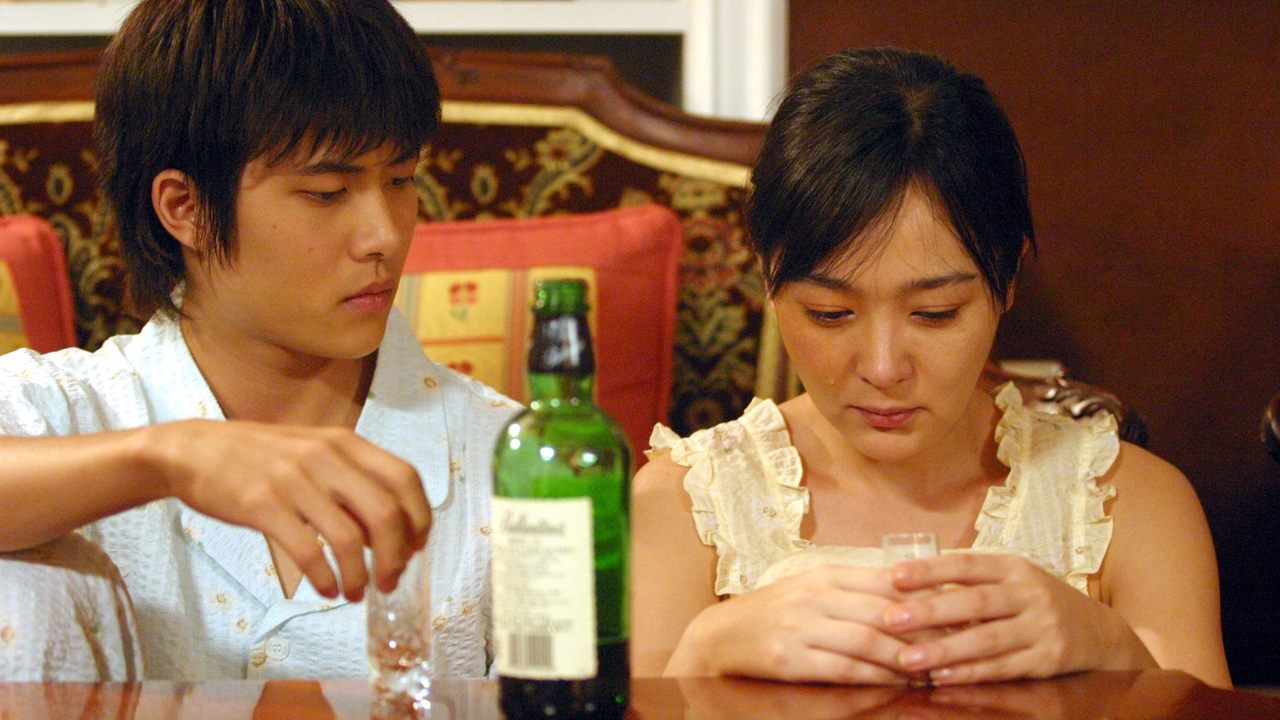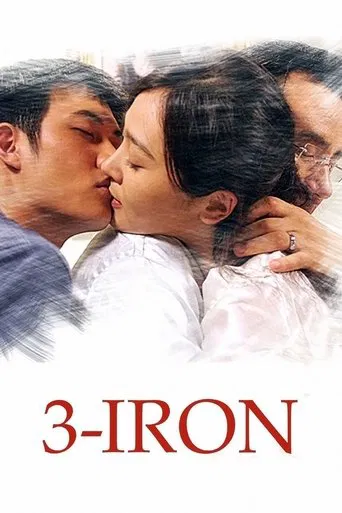Acensbart
Excellent but underrated film
FuzzyTagz
If the ambition is to provide two hours of instantly forgettable, popcorn-munching escapism, it succeeds.
Kamila Bell
This is a coming of age storyline that you've seen in one form or another for decades. It takes a truly unique voice to make yet another one worth watching.
Marva
It is an exhilarating, distressing, funny and profound film, with one of the more memorable film scores in years,
shanghaaii
Actually headline explains every feel i felt while i was watching.
after 10-15 minutes, i asked myself why are u watching and after 40-50, i was like oh okay. when ended it , it became one of my favorite. with a deep meaning, great acting, less talking and simplicity of cinematography... it was definitely worth watching and also the soundtrack is perfect!!
hoxjennifer
Tae-suk is not your typical breaking and entering burglar. He is a silent and in his own way, eloquent, gentleman who drifts between vacant houses, cleaning up after himself, doing repairs and house maintenance for his unassuming hosts. After stumbling upon an abused housewife, whose once captivating beauty has been reduced to scars and bruises, he rescues her from her isolation and shows her his world.What is notable about this film is that the two ethereal protagonists do not speak a word to each other throughout the entire film, except for two phrases by the female near the end. Yet, their silence is compelling and through facial expressions and actions, they tell a very passionate story of love that is open to interpretation and will keep you wanting to watch more. I am thoroughly impressed by this film. Loved the original concept.
Ctt519488
With a modest $1-million budget, this 2004 Korean film takes you on a journey through the life of a young man, Tae-suk (Jae Hee), who spends his every waking moment living someone else's life. He is a wanderer, who doesn't appear to have any family, except for the families he photographs when breaking and entering their homes while they're vacationing, vicariously enjoying their amenities. The opening scene pictures the swinging of a 3-iron golf club in a green, grassy panorama and transitions with a simple cut to a scene with a man honking the horn of his car. Of course, most would honk the car's horn if Tae-suk blocked in their car with his motorbike. He left it there while he was taping "take-out" signs to the doors of houses nearby. He doesn't work for a restaurant, however. Soon enough, the viewer realizes he does so to find out if families are away on vacation to ensure he can take a vacation himself in their houses until they return. Of course, not without washing every bit of dirty laundry in the house and leaving a few tricks for the returning voyager. While the viewer is left wondering what exactly is going on, there is a sense of subterfuge that will keep you watching until the end. Tae-suk's daily expeditions of moving from house to house to enjoy the lives of the homeowners in a voyeuristic way will make you wonder why you are watching this and what the point of the film actually is. Keep watching because the plot gets tangled as Tae-suk stumbles into a house that wasn't as empty as he assumed. Tae-suk breaks into a house where he meets Sun-hwa. Although their interactions remain silent, it is clear there is some sort of meeting of the souls when Tae-Suk returns to the house to check on Sun-hwa after he realizes she needs help. Seeing the wounds left from her abusive husband, Tae-suk treats her with the utmost privacy and respect, ironically, by breaking back into her home and leaving fresh clothes for her upon her emergence from the bath. The deliberate twists and turns of the plot offer an insight into the main character's innermost feelings and experiences in life, though seemingly unrealistic at times. Tae-suk and Sun-hwa run off together when her husband returns home, after much trial and tribulation between the encounter of these two men. But wait, this isn't a Disney film. This film doesn't have a fairy tale ending. Retaining the memories of their time together, Tae-suk uses his ever-present digital camera to impose himself and Sun-hwa, who follows him as he trespasses, into the lives of the vacationing homeowners. Although silent and seemingly aloof, her true love is apparent in every interaction Sun-hwa has with her soul mate, Tae-suk.The short screen cuts and melodic interludes embellish the partial periods of time that Tae-suk remains in the random, temporarily vacant homes. Like many of director Kim Ki-duk's films, the main character is mute and peripheral ones are laconic. If you are a fan of American films, where the hero does most of the talking, this one is most definitely not for you. Despite the hero's lack of conversation, the Moroccan music playing through the scenes help to move the film along at a steady pace. The melody also invites the viewer to enter a mysterious world and engage in the voyeuristic frame-within-a-frame perspective that writer, director and producer Kim Ki-duk creates. Similar to Ki-duk's Samaritan Girl, written and produced in the same year, there is a deep underlying sense of unhappiness and passionlessness in the love lives of the main female characters. They find their soul mates but are forced to part just before another life-changing event occurs. The comparison of 3-Iron to American films is minimal in terms of screenplay, director cuts, and cultural similarities. There are intricate details that really piece the movie together if a viewer watches from a culture-less, judgment-free perspective. If you attempt to impose American film culture on this masterpiece, you will miss some obvious connections that the more observant, objective viewer is bound to catch. While the American viewer might notice such subtleties as the man leaving the driveway in the very beginning of the film is none other than Sun-hwa's husband, the cultural values and norms of this film may lead to incorrect conclusions. As Sun-hwa remains alone during the days in which her husband is away on work trips, one might assume that he forced her to remain there almost like a slave that does not work. When the police bring her back to him, from the American perspective, it would appear that they conspire to enslave this young woman. Yet, in Korea, the woman is expected to be submissive to her husband, unlike in the United States. Although this perspective is becoming outdated, the culture is slow to move past this, especially for very conservative, business-centered individuals. From an American perspective, submission to a husband may seem wrong, but to the Korean viewer it is a cultural norm. The morality of the issue is bound to come up, but difference in norms could confuse the American viewer. Nevertheless, the film is enjoyable, despite the temporary confusion one may experience in certain scenes. I highly recommend this film to any cinéphile. If you enjoy dramatic flavor, imagine the romanticized tragedy of the American film, Remember Me, paired with the silence, yet flourishing meaning like The Artist, and a refreshing nihilistic edge, and you've pictured this must-see, award winning film.
chaos-rampant
Spring...Spring showed that this man knows reflections, remember the temple gliding on waters, but has trouble articulating a convincing illusion of life. So we got splendid revelations of a phony nature, a postcard in place of the real thing, this was problematic because it run counter to the everyday essence of Buddhism. This is also an issue here, the human dimension as it were; the abusive husband, the cop, the warden, Kim doesn't seem able to convince that these are human beings who breathe and walk in the same world as you and I do and not just plot agents on a page.Something else is at play here, emptiness that I usually seek. The bulk of the film is a love affair between protagonists who never speak, so have to come up with other ways to convey the intimacy. Wong Kar Wai that this was inspired from strives for a similar effect; he presents only impulses for connection, only gestures, time and caress, trusting us to complete the affair in emotional space he has reserved for these things. I think we really lucked out that this was filmed quickly, in just over two weeks, so it is less conscious about a lot of things, again a little contrived, Kim will probably never be one of our greatest filmmakers, lacking a truly subtle touch, but has enough intuitive pull this one.They break into other peoples' homes while the owners are away, transient beings passing through the world. They own nothing, are attached to nothing, in the sense that everything exists just for the night together and is not theirs to take on their way out. He spends time diligently fixing things, doing laundry, taking care of life around him. They take photos together, reflections for later, one of the most poignant images about what this is all about is where he photographs himself next to photos of people. You can presume that eventually he has died and it has all ever so slowly been rolled into a dream about him, pieced from time and reflections. It doesn't matter so much as being enveloped by a feel they have built between them.It is much more Buddhist than Spring. They don't need words between them because they don't have to weigh on each other with self and desire, not having any attachments beyond being together and getting busy putting back into order each new world they come into.He becomes a shadow, air, air that she holds by the hand. The golf ball spins the karmas into motion again.This is fine but if you are like me, you'll get shivers imagining the film in the much more delicate hands of a true calligrapher like Shunji Iwai.

